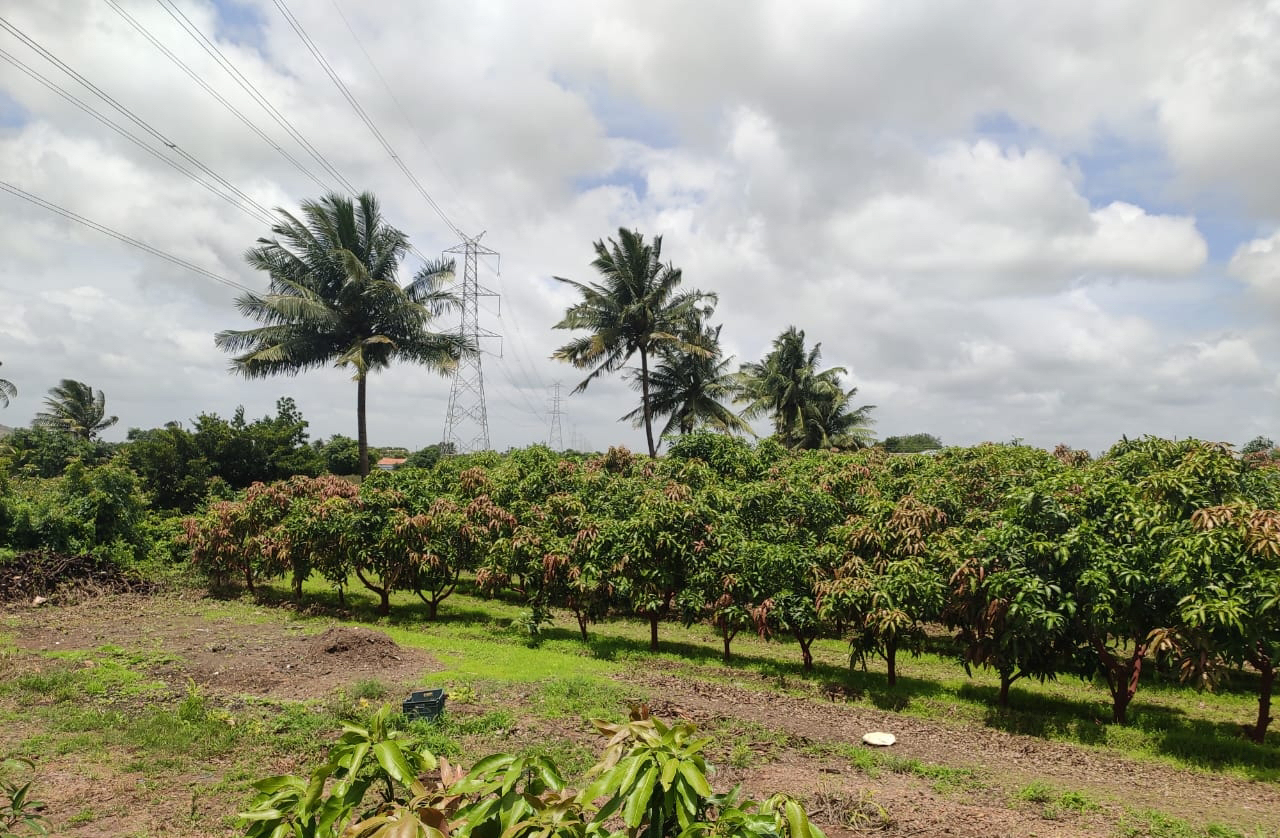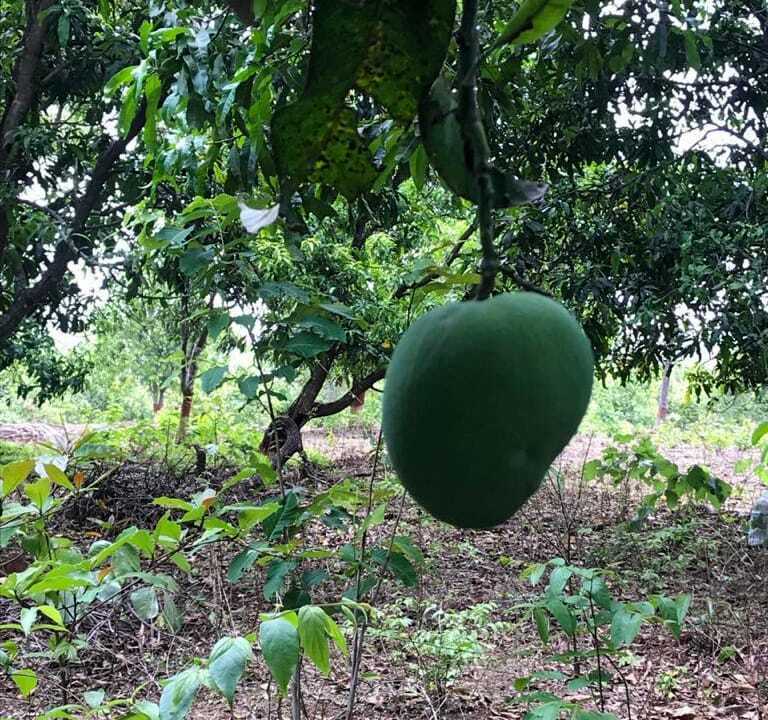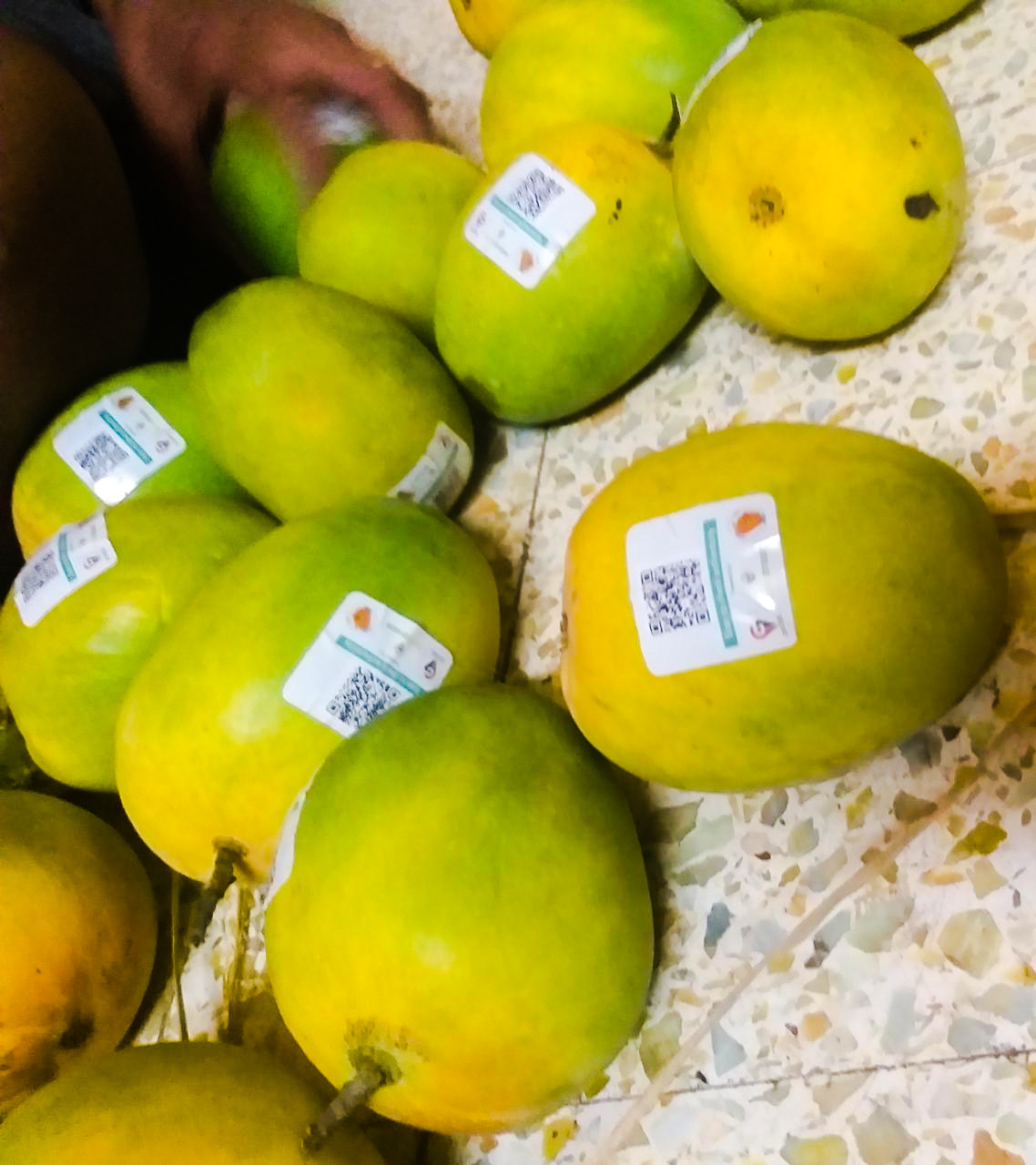Here’s How GI Tagging 400 Million Alphonso Mangoes Will Boost Farmer Incomes
The Geographical Identity (GI) tagging efforts by the government of Maharashtra and Indian mango farmers' collective will tag over 400 million mangoes of more than 1,000 farmers in the Konkan belt by 2022.

“What’s in a name? That which we call a rose by any other name would smell as sweet!”
Thus wrote William Shakespeare in his immortal play Romeo and Juliet. What the bard didn’t know is that the farmers of Konkan belt — Ratnagiri, Sindhudurg, Thane, Palghar and Raigad of Maharashtra famous for Alphonso mangoes, very vociferously and categorically disagree with him.
“No. Our Alphonso isn’t the same as others,’’ strongly asserts Chandu Muley, a mango farmer of this region. He adds, “Our Alphonso is unique, special and different. You buy our ripe mangoes, leave them in one room for an hour, close the door and when you re-enter you will be filled with the unique fragrance of the fruit. You will never find this aroma in any other!’’
Most mango farmers from here would agree.

Dr Vivek Bhide, chairperson, Konkan Alphonso Mango Producers and Sellers Cooperative Association and a practising medical professional from Ganapatipule, who also owns a mango orchard with 1,500 trees in Ratnagiri, says, “For the last couple of years, under the name of Alphonso, Indian markets are getting flooded with many national and international variants of mangoes such as the ones from Malawi of South-Eastern Africa and many neighbouring states of Maharashtra. As a result, both customers and our farmers are getting duped.”
Elaborating further he explains that some farmers take the saplings from Konkan nurseries and grow them in other regions. Their fruits appear the same but differ as every plant is indigenous to the place it originates from. When the time comes to sell, these outsiders flood the market by selling their fruits at a much lesser price, which hurts the Alphonso mango farmers.
To retain their unique identity and get the correct price, mango farmers and farmer organisations of this region joined hands and got the GI (Geographical Identity) tag for Konkan Alphonso mangoes in October 2018.
This is not the first mango variety in India to get the advantage of GI tag. Others like the Malihabadi Dashehari from Uttar Pradesh, the Banaganapalle from Andhra Pradesh, the Appemidi from Karnataka, the Fazli, Himsagar and Laxman Bhog from West Bengal, the Jardalu from Bihar and the Gir Kesar from Gujarat are other varieties that have already got the advantage of GI-tags. It took nearly a decade to get the GI-tag for Alphonsos and the process was started by Dr Bhide.
Not So ‘Aam’

Alphonso mango orchards are spread over 200 kms in the Konkan belt of the state. That’s more than 1.8 lakh hectares of land, measuring up to nearly 6 per cent of the mango region in the country.
In a normal year, Govind Hande, advisor Exports Cell, Horticultural Department Maharashtra, says that the general annual production is a humongous amount of more than 1,00,000 tonnes (approximately 400 million mangoes) of which 60,000 tonnes are exported to countries like Dubai, USA, Japan and some European countries.
He adds that the mangoes grown over 5,000 acres of land in the Konkan belt of India by 2022 will directly benefit over 1,000 mango farmers in India.
However, with so many varieties of mangoes growing in the world, mere GI-tagging isn’t of much help. Every product at the end needs the means to trace it back to the place from where it originates to mark its authenticity. To improve the function of traceability, agricultural technology powered by blockchain technology and SaaS (Software as a Service) technology solutions are being used. Each GI-tagged product with the advantage of traceability has a sticker attached to it. With a smartphone pointing on the sticker, one can get all the information of the product.
One such traceable software, ‘FarmTrace’ is made by Innoterra Tech, a Swiss-India food and technology company, which has tied up with the government cell to trace GI-tagged Alphonso mangoes back to its origin. “Apart from details of origin, FarmTrace technology can also provide consumers with extensive information on growing conditions, timeline of the produce as well as safety and nutritional metrics,” explains Suniti Gupta MD and CEO of Innoterra Tech (India) from her Mumbai office.
The tech company also designs traceability stickers to help farmers label their produce accurately.
Elaborating further on the advantage to the farmers, Gupta says, “Traceability not only helps the farmer capture data at farm level, it also helps them reduce wastage, streamline supply chains and access newer markets and avenues – for instance, many are now able to export their produce — the quality assurance and credibility ensured by traceability certainly helps them get their products in developed markets.”
This entire process is neither very cumbersome nor expensive. Nasik-based Abhilash Gorhe a compliance consultant and FSSAI Fostac (food safety training and certificate) approved trainer, who is helping farmers get GI approval for their Alphonso mango says, “Getting a GI certificate isn’t a difficult process and costs only Rs 2,100 for 10 years of accreditation for a farmer. Our officers go to each farmer and confirm the authenticity of the farmer, and if his farming practices match the standards set by the Government of India, he gets the tag and traceability stickers by paying minimum charges. This isn’t a big amount for even a small-scale mango farmer.”
Farm-to-Fork Consumption

For domestic markets or for the general public, the GI-tag or the traceability sticker may not be of much interest but in the export market unless the fruit comes with the sticker, it doesn’t sell. Of course, an aware domestic customer will always look for the mark of quality.
Pune-based advisor Exports Cell, Govind says that traceability is most important in the export of perishable products like vegetables and fruits. He explains that for exports one has to understand country-wise requirements. He is sure that very soon even domestic users will demand for a GI-tag and traceable sticker on every product they buy. He also observed that as most of the present-day mango farmers are educated and aware of the need of the hour, they are willing to upgrade their technology to make maximum profit.
Elaborating on the steps ensured by the government department, he says, “Every country has its own set of rules for quarantine, postharvest treatment for quality control, proper packing, marking and labelling of farm produce so that the end consumer knows what are the steps taken for ‘Farm-to-Fork’ consumption.”
He adds, “For every mango fruit exporter we conduct regular workshops, train them to comply properly with the rules of GI-tag and traceability. We also provide them with means of hot water, irradiation or vaporisation treatment that is a must depending on the country they are exporting to.”
Ratnagiri-based Amit Mulye, with a diploma in Mechanical engineering, prefers to take care of his mango orchard himself where annually more than 15,000 dozen mangoes are harvested. He is very happy being one of the few farmers who have already got the GI-tag advantage.
“Even during the pandemic, though we incurred more expenses on the transportation of our fruits due to lockdown, the GI-tag boosted our prices. It gave authenticity to our fruit, which made us happy,” says Mulye.
Like Amit, there are thousands of Alphonso farmers who eagerly await maximum benefits of the completed GI-tagging process of their produce. The benefits of which will hopefully be transferred to the mango-hungry consumers too.
(Edited by Yoshita Rao)
This story made me
-
97
-
121
-
89
-
167
Tell Us More
We bring stories straight from the heart of India, to inspire millions and create a wave of impact. Our positive movement is growing bigger everyday, and we would love for you to join it.
Please contribute whatever you can, every little penny helps our team in bringing you more stories that support dreams and spread hope.



















